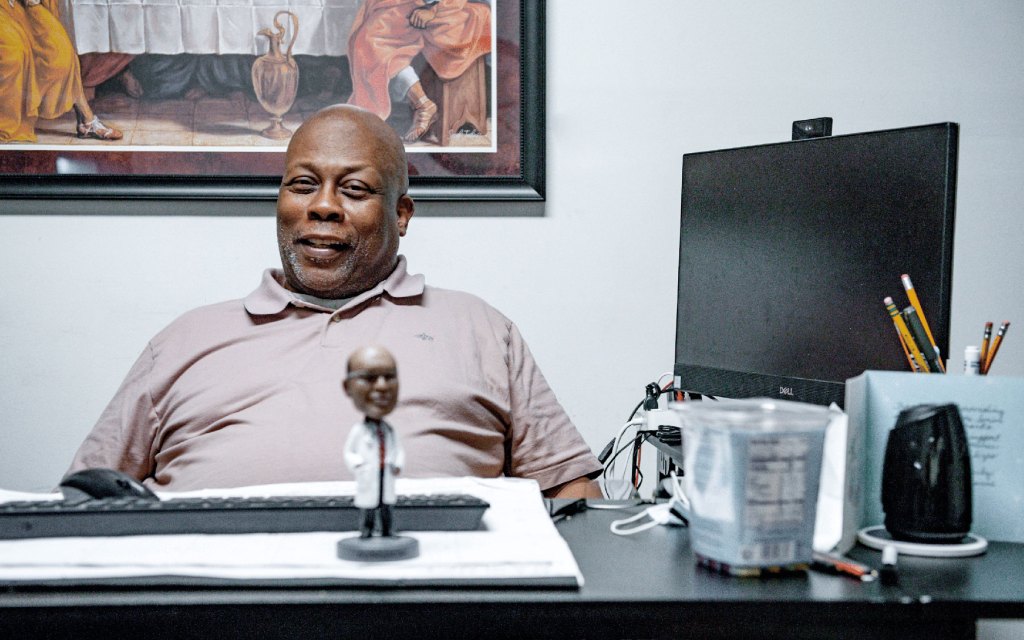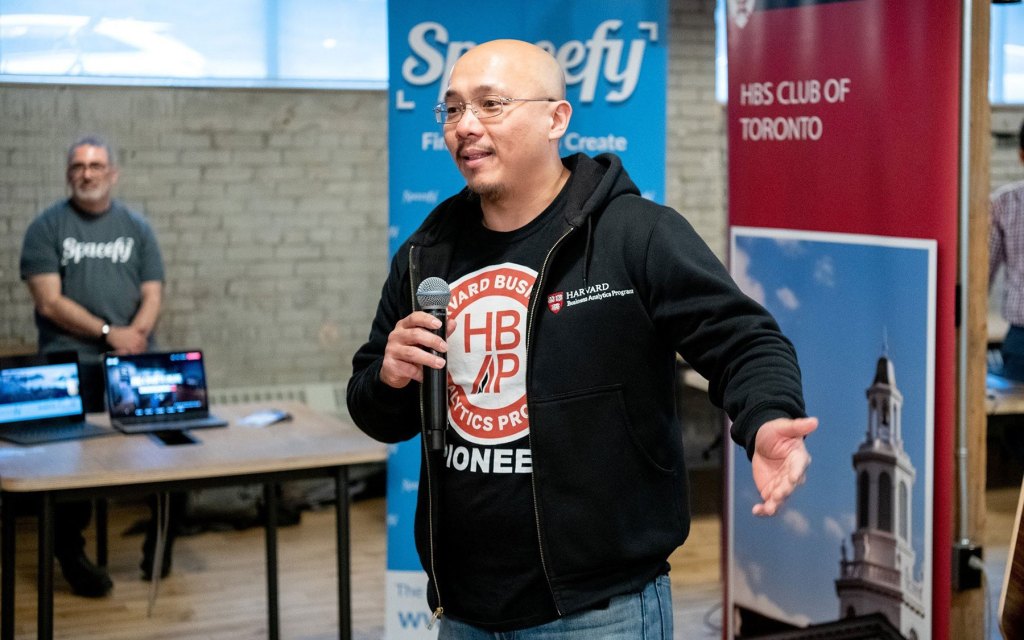
Nervous about networking? An elevator pitch is a perfect thing to create to prepare for any networking interaction. A winning elevator pitch brings your professional story to life and creates a strong start to any conversation.
This guide is a complete and in-depth look at crafting an elevator pitch to help you stand out when networking. Read straight through, or use the agenda below to jump between topics.
- What is an elevator pitch?
- Do employers care about your elevator pitch?
- How do I set myself up for success?
- How do I create and refine my elevator pitch?
What is an elevator pitch?
Imagine you are in an elevator, and your professional icon steps in. You only have the 30-60 second elevator ride to introduce yourself and make an impression. What will you say? Your elevator pitch!
Will you use your elevator pitch in an elevator? Probably not — more commonly, you’ll use it at networking events and career fairs, but you never know when luck will strike you and you come face-to-face with a connection who can help you with the next step in your career.
The elevator pitch is especially useful when you’re job searching. Still, even if you’re gainfully employed, it is a critical part of your professional identity that we recommend all professionals at every stage have prepped at all times. Will it change as you progress in your career? Of course, it’s a useful pitch to always have in your back pocket.
Do employers care about your elevator pitch?
Many networking conversations where you use your elevator pitch are not direct conversations with companies hiring. But they can be — you can use your elevator pitch during hiring events when introducing yourself. Whether the person you are saying your elevator pitch to has an open role or not, a strong elevator pitch showcases many of the skills employers are searching for in job candidates.
Employers want to hire candidates with strong communication skills and enthusiasm for their work. A concise and clear elevator pitch delivered with confidence and composure can quickly display what employers want.
How do I set myself up for success?
Start with self-reflection. Some questions to help you brainstorm include:
- What do you do?
- What are your skills?
- Why does it matter?
- What’s next?
How do I create and refine my elevator pitch?
An elevator pitch typically includes these four parts:
Past: How did you get started in the field? Starting with your “why” is a great technique to draw in your audience immediately. Personal stories that are professional and appropriate can be great here. People connect with and remember stories readily.
Present: What are you up to currently? Include relevant details about whether you’re currently in school or what job you’re currently working.
Future: Where are you headed professionally? This is a perfect time to concisely share your career goals.
Closing: Depending on where and how you’re using your elevator pitch, ask a question to engage your contact further.
Sit down. Take a deep breath. Use the self-reflection you’ve done and the main points you’ve identified, and write the first draft of your pitch. You will say this pitch out loud, so keep it conversational and only include words and phrases that feel comfortable and natural to you.
After you’ve written a draft, assess it. Does it show passion, enthusiasm, and a willingness to learn? Does it feel unique and like it will help you stand out from others? Rework your written elevator pitch as needed.
While it can feel easy for some to write an elevator pitch, saying it out loud can feel entirely different. Practice your pitch alone, in front of a mirror, while driving your car, to your pets, and to trusted friends. You’ll only find the words you’re comfortable saying by verbalizing them over and over.
Expert advice
“Make your first draft [of your elevator pitch], then walk away. Come back and make your first revision, and walk away. Do this process three or four times. The iterations you make, having walked away for a period of time, will allow multiple perspectives to be considered. Don’t be afraid if it takes you 6-8 times to feel comfortable with your pitch. And once you do have one that you like – use it, and don’t be afraid to always polish it up with your continued use. You are always evolving as a professional. Why wouldn’t your elevator pitch evolve with you?”
– Matthew R., career expert at edX

Seek feedback from trusted friends, colleagues, and mentors. Ask them questions about what parts they liked, if they were interested and engaged by it, how the length felt, and how the delivery was. Asking for feedback is hard, but you’ll likely say your elevator pitch in front of many different audiences. Seeing how it lands with different people is key to success. Getting tough feedback from a trusted friend is better than missing the mark with your dream employer.
Before any career-related event, brush off your elevator pitch and tailor it to the situation. You will alter the pitch based on the audience and purpose, but the essential ideas stay the same. For example, you might tailor it to a specific subset of your industry, a company or role, or a networking contact. Consider why you are engaging with your audience, and try to tweak your pitch to meet their unique needs. Connections quickly want to know what you have to say that is most relevant to them.
- To connect with a specific company, highlight aspects of the mission, specific products, or the company culture that appeals to you.
- To tailor the pitch to a specific role, emphasize specific skills, transferable skills, or tools that you’ve used in the past that often appear in job descriptions of that role.
- To connect with a specific person, research them on LinkedIn, try to find a connection between your background and their background, and incorporate that into your pitch.
The delivery and connection with your audience are just as important as what you’re saying. Strive to be warm and friendly. Don’t speak too fast; exude confidence, and make eye contact. Ask questions to show genuine interest.
After all, sometimes people forget what you said specifically, but if they remember enjoying speaking with you generally, that is a big win and can sometimes be enough to get your foot in the door for a second conversation.
Elevator pitch example:
My name is Jaime Doe, and I’m a project manager specializing in Agile methodologies. I have a background in arts program management, which evolved into a passion for bringing structure, flexibility, and problem-solving to creative projects. This passion encouraged me to pursue a boot camp in technical project management at [school name], where I formalized the skill sets I’d learned on that job and applied them to the technical world. I’m excited to combine my technical training and experience managing complex arts programs to continue successfully leading projects. You mentioned your background is also not in a technical field. Would you tell me more about your progression from when you first started to where you are now at [insert company name]?
Check out our Networking Guide for more about how to excel when networking.









